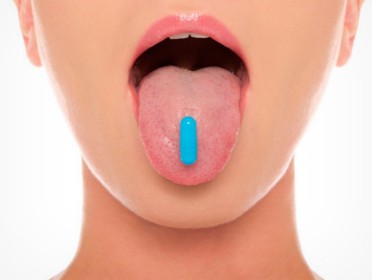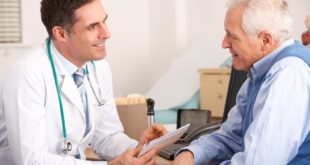
Mums count on it when they kiss their children’s injuries better and many involved in natural medicine admit to having faith in the concept. And with more and more research scientifically verifying its presence, practitioners of conventional medicine are being called to embrace the power of the placebo effect.
It has long been thought that the often-vilified placebo effect is all in the head – and it seems that is completely true, says Damien Finniss, from the University of Sydney’s Pain Management Research Institute at Royal North Shore Hospital, who is involved in researching this controversial area.
“Research shows that placebo effects may occur in conjunction with any form of treatment where the mind-brain interaction works to promote the body’s natural healing mechanisms,” Finniss says.
Finniss likes the fact that placebos take the emphasis off the medicating part of the healing process and cover the whole therapeutic experience to include factors such as building the patient’s trust in the medical professional, the setting of the treatment and the belief in the body’s ability to get better.
“Essentially, placebo effects change the way our brains and bodies work, complementing the effects of medical or other therapeutic treatments, often leading to reduction in symptoms,” he says.
“The placebo component of every therapy should not be overlooked. It has the potential to make routine medical treatments more effective.”
More than a sugar pill
he placebo effect has been long maligned for its so-called use of deception and links with more airy-fairy and non-scientific concepts such as faith healing. And it seems there is an element of both, along with other environmental, intellectual and cultural mechanisms that kick in to enhance the effect.
Why can a mother’s kiss stop a child’s finger from hurting? Is it because the pain was imagined or the child has complete faith in Mum’s power to solve problems, so the brain and body combine
to stop the pain?
This same interaction may be responsible for the sudden relieving of symptoms when you sit in a doctor’s surgery – you have taken the first step to getting better by seeking help from a person you trust in a setting that you link with healing.
“You don’t need a sugar pill to create a placebo effect. Our research reveals that placebo effects can occur in routine medical practice across a wide range of medical conditions – and these effects can be therapeutically powerful,” Finniss says. “Clearly there is a great deal more to the placebo effect than we previously thought.”
Startling statistics
Irving Kirsch, a UK psychology professor and author of The Emperor’s New Drugs: Exploding The Antidepressant Myth (Random House), uncovered some astonishing information while researching drug trials for antidepressants.
After analysing 38 published clinical trials involving more than 3000 depressed patients, he found that a whopping 75 per cent of the antidepressant effect was also produced by placebos – sugar pills with no active ingredients.
“Placebos instil hope in patients by promising them relief from their distress,” Kirsch wrote in his book. “Genuine medical treatments also instil hope, and this is the placebo component of their effectiveness.
“When the promise of relief instills hope, it counters a fundamental attribute of depression: hopelessness.”
In Finniss’s research into pain relief, opioids were given in the first instance and a placebo was used next. Many of the patients continued to feel similar pain-relief effects after they had taken the placebo. “Scans showed the brain changes on the placebo were identical to those on the real drugs,” Finniss says.
Last year, researchers at the University of Texas found that one in three women recruited for a study into low libido reported a “significant increase” in sexual satisfaction after taking a placebo. “The findings from our study show how a woman’s expectations to improve sexually can have a substantial positive effect on her sexual wellbeing without any actual drug treatment,” the study’s lead researcher, psychology professor Cindy Meston, says.
There have also been other studies in recent years linking the placebo effect with helping sufferers of chronic sinus problems, arthritis, chronic fatigue syndrome and even Parkinson’s disease.
The placebo business
In 2008, two NSW couples decided to harness the power of the placebo and created Universal Placebos, an online company selling bottles of sugar pills for $20. Co-founder of Universal Placebos, homeopath Brian Bruce, says the beauty of placebos is they are non-toxic, non-invasive and have no side effects. “They can be a first resort, they can be a last resort and they can work with and support other medical treatments,” he says.
Bruce says while selling the bottles of placebo pills is a bit of fun, he is convinced of the power of the placebo effect. “We know from reading the research, and what we’ve seen ourselves, that placebos work in at least 30 per cent of cases and as many as 70 per cent,” he says. “The placebo effect can even occur when the person knows they’re taking a placebo. It’s pretty powerful stuff.”
Source: bodyandSoul
 We are sharing information for knowledge. Presented by. SocialDiary.Net
We are sharing information for knowledge. Presented by. SocialDiary.Net



